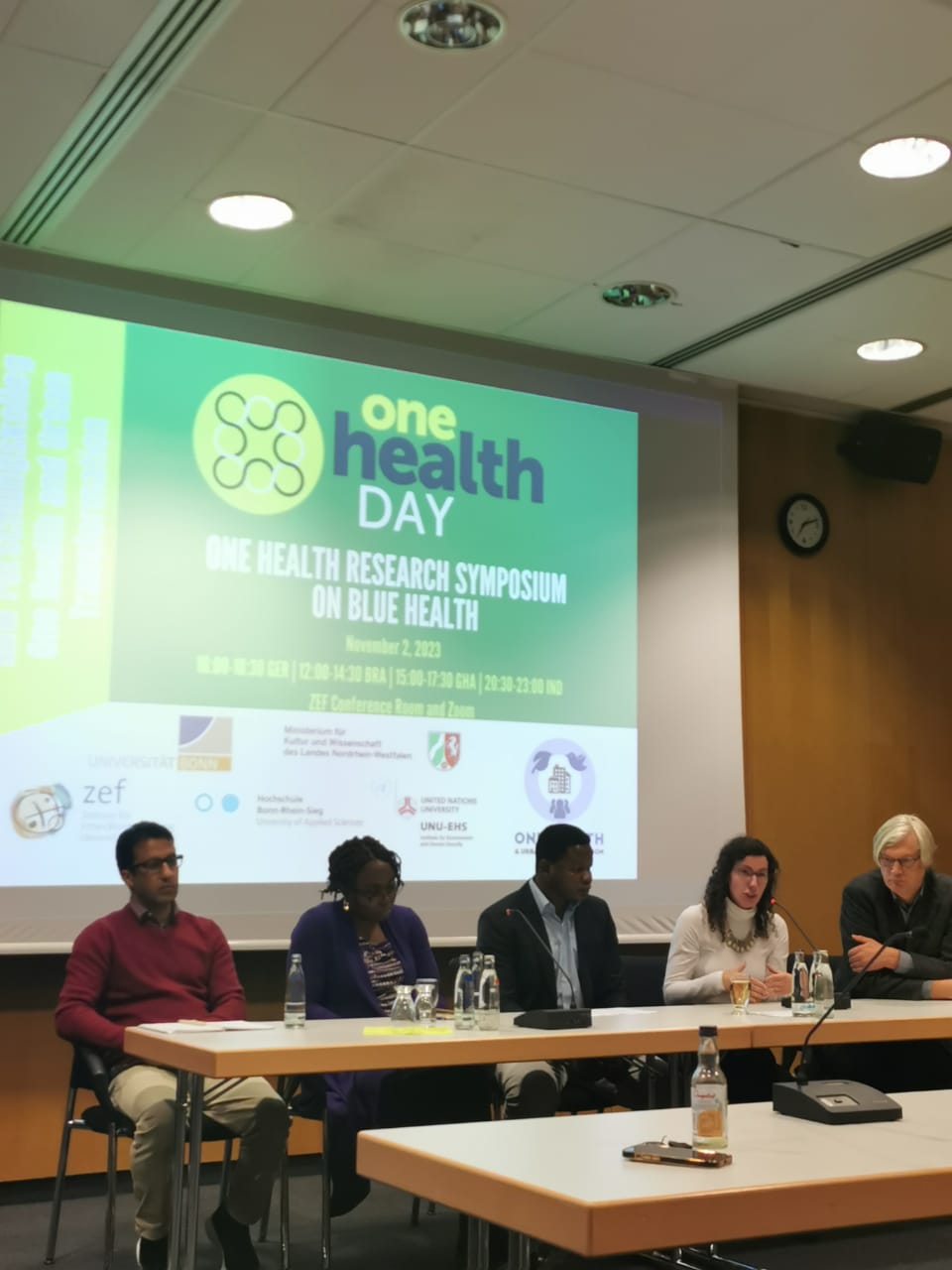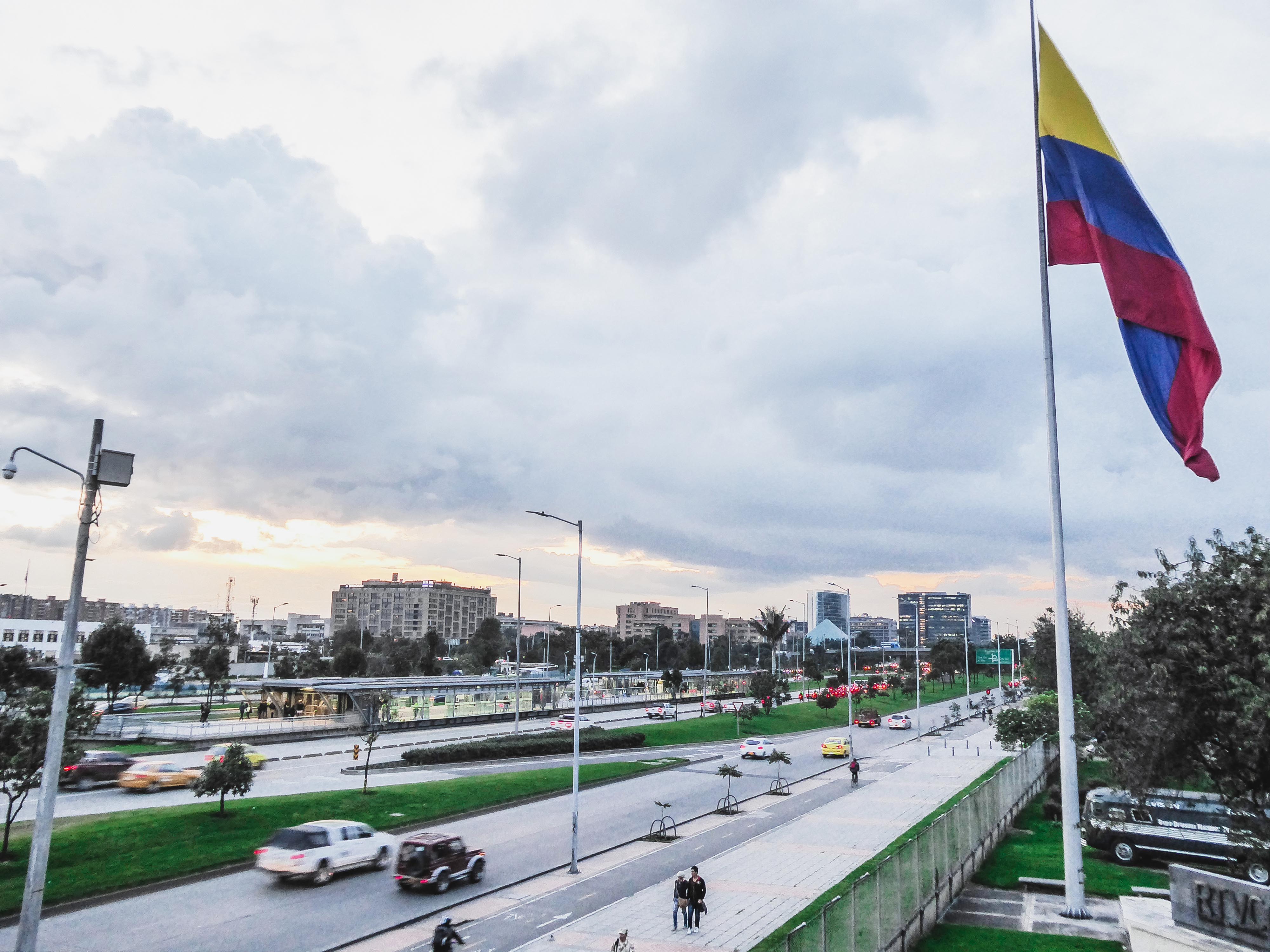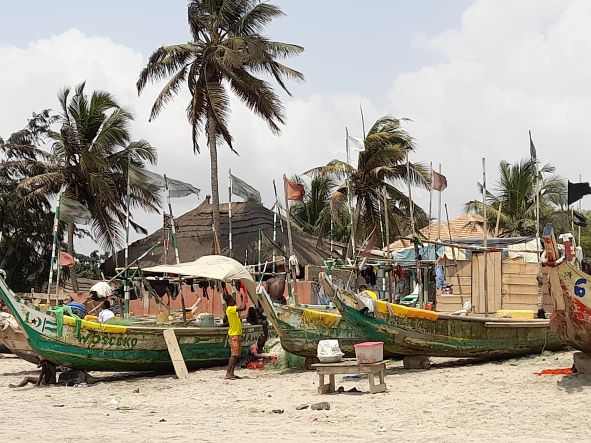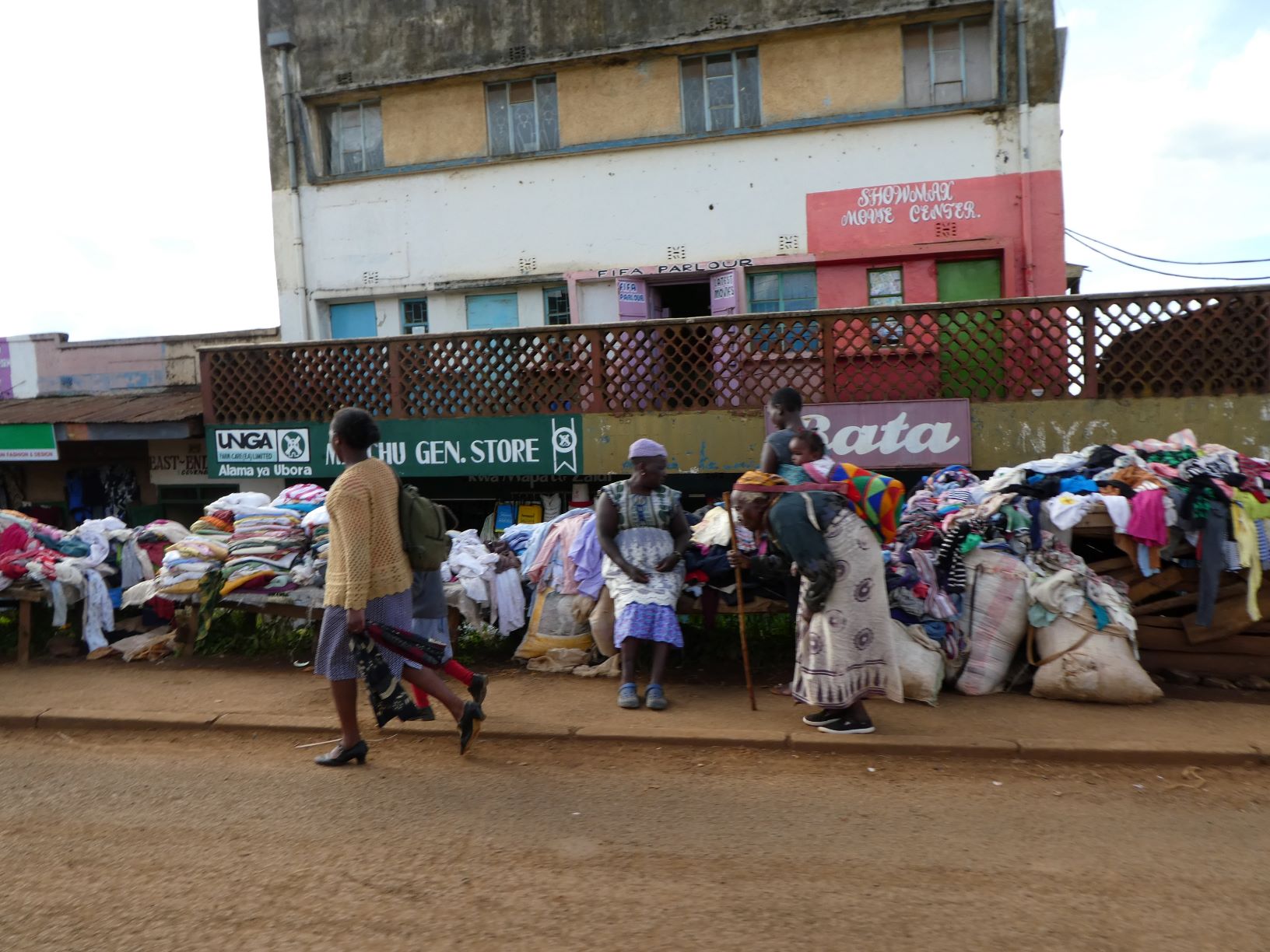Blue Health for all!? One Health Day 2023 at ZEF
On November 2, 2023 the One Health and Urban Transformation Graduate School at ZEF organized a (hybrid) One Health Research Symposium in commemoration of the annual World One Health Day (celebrated on November 3). This year’s symposium centered on “Blue Health,” emphasizing the significance of urban water systems and their impact on health and well-being. In this blog we aim to highlight key discussion points from the symposium, including questions such as: Why are concepts like Blue Health and Water-Sanitation-Health (WaSH) important – and for whom? We also delve into the current state of Blue Health in different regions of the world, based on the research and case-studies presented and shared at the symposium.
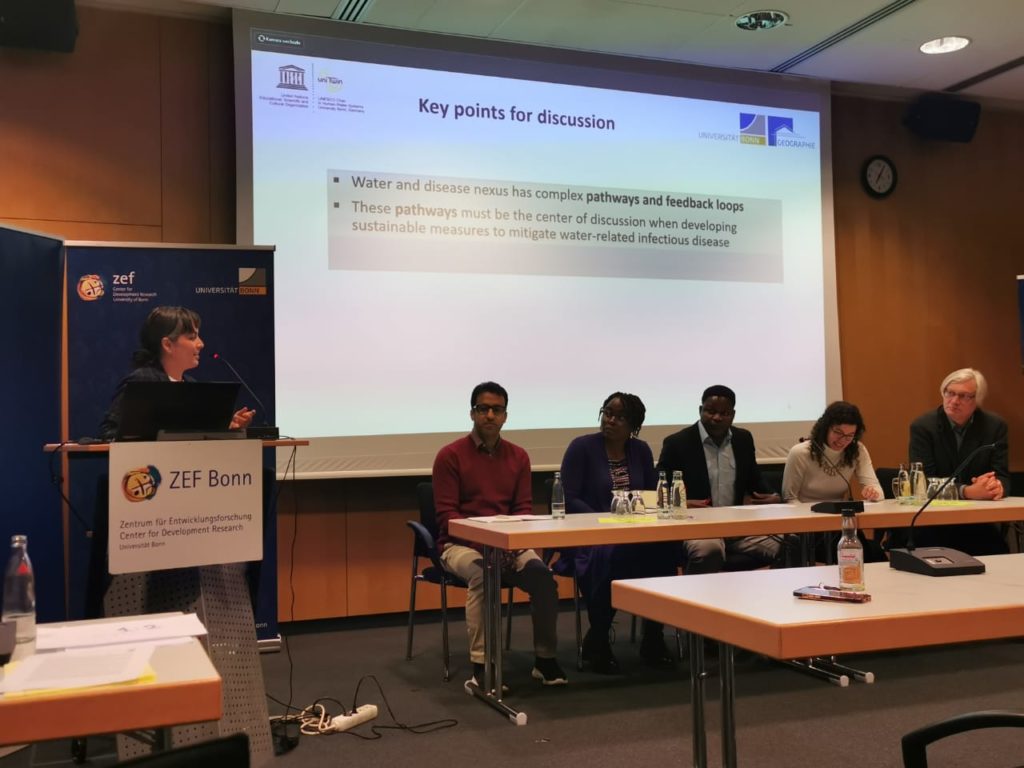
Anna Brückner and Thomas Kistemann
What is Blue Health and why is it important?
Blue spaces are broadly understood as all forms of natural and man-made water bodies (Smith, et al. 2021). This includes oceans, rivers, lakes, dams, and even fountains. Blue health refers to the well-being of these blue spaces and of those who engage with them. Blue health is essential, as the entire human civilization depends on water for survival. Blue Health and WaSH are captured in Sustainable Development Goal 6 (guarantee water and sanitation for all). The specific targets within SDG 6 range from ensuring universal and equitable access to water to increasing sanitation facilities for women to restoring water-related ecosystems, including mountains, forests, and wetlands.
Whose crisis is it?
Climate change has severely affected water availability, particularly in the Global South. In his presentation on Water Resource Management and Climate Change, ZEF senior researcher Dr. Fazlullah Akhtar showed that over the past few years, groundwater and the amount of water coming from snowmelts have been declining steadily in Afghanistan. This has a direct impact on the country’s food security, as less water available for agriculture means there will be lower yields. Coupled with political instability, the scale of the humanitarian food crisis in Afghanistan is very high. Additionally, the lack of water affects rural sanitation facilities, thus increasing the burden of refugees who have migrated to rural areas.
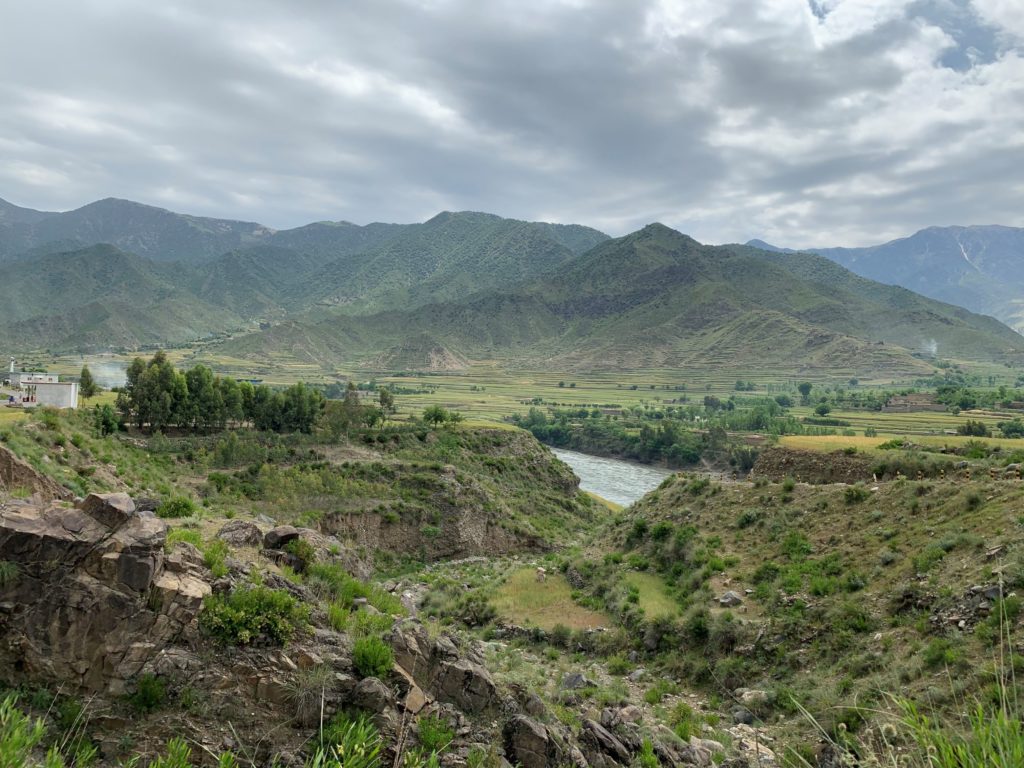
The human-water-disease interaction has complex pathways and feedback loops. In his talk on Water bodies, recreational use, and risk of disease, One Health alumnus Dr. Joshua Ntajal pointed out that with climate change and increased flooding, the risk of outbreaks, particularly of vector-borne diseases and Neglected Tropical Diseases has significantly increased. This threatens the health of those who are already socioeconomically marginalized and depend on blue spaces for their day-to-day activities. Unfortunately, many communities that depend on blue spaces have limited knowledge of the quality of flood-water and the disease risk that it carries. These communities must be at the center of the discussion when devising sustainable measures to mitigate water-related infectious diseases.
Blue Health as a health resource: Moving from anthropocentrism to eco-centrism
Anna Brückner, a researcher in the first batch of One Health and Urban Transformation Graduate School, used examples from her doctoral work to explain that urban blue spaces have a strong potential as health-enabling spaces as they promote physical activity, mental well-being, social interactions, and improve the quality of the environment as a whole. If the revitalization of blue spaces is done in a context-sensitive, inclusive, and equitable way, it can have significant implications for the health of communities in and around these spaces.
In her talk on Aquatic ecosystems conservation, ZEF senior researcher Dr Isimemen Osemwegie highlighted the irony of how humanity is dependent on the resource that it is destroying. If seen from an eco-centric standpoint, the water itself has complaints that it reveals in many ways, such as ocean acidification and the increase of dead-zones. There needs to be a shift in the sustainability paradigm from looking at nature as just a piece in the puzzle to understanding that nature is the bedrock on which society lays.
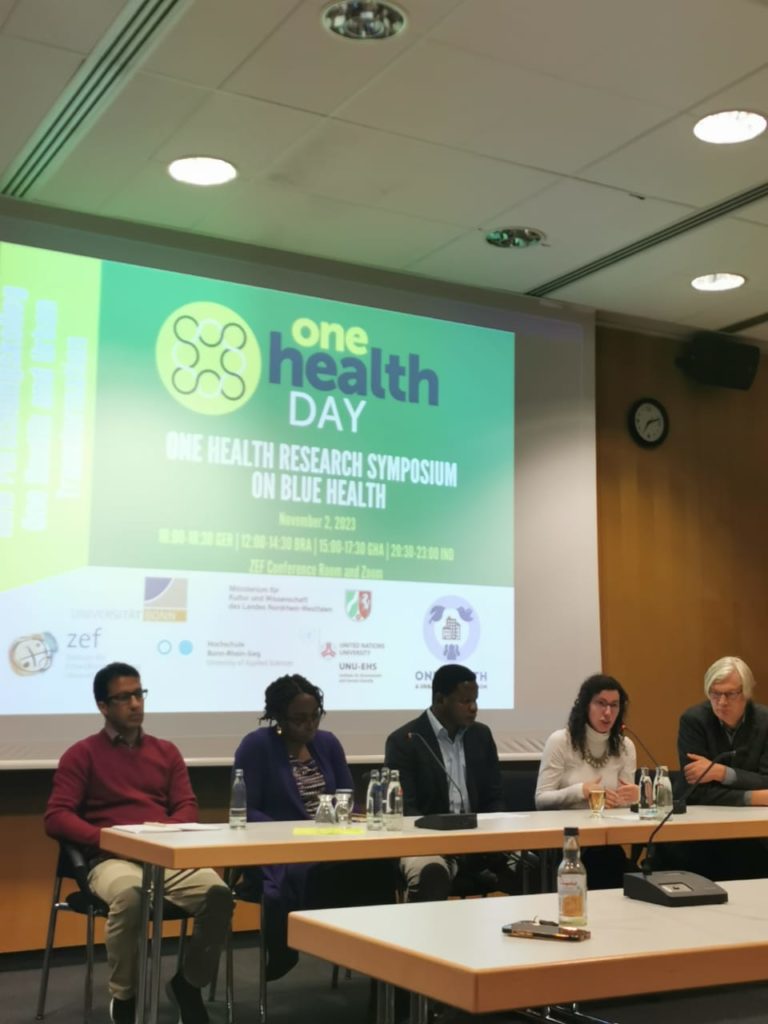
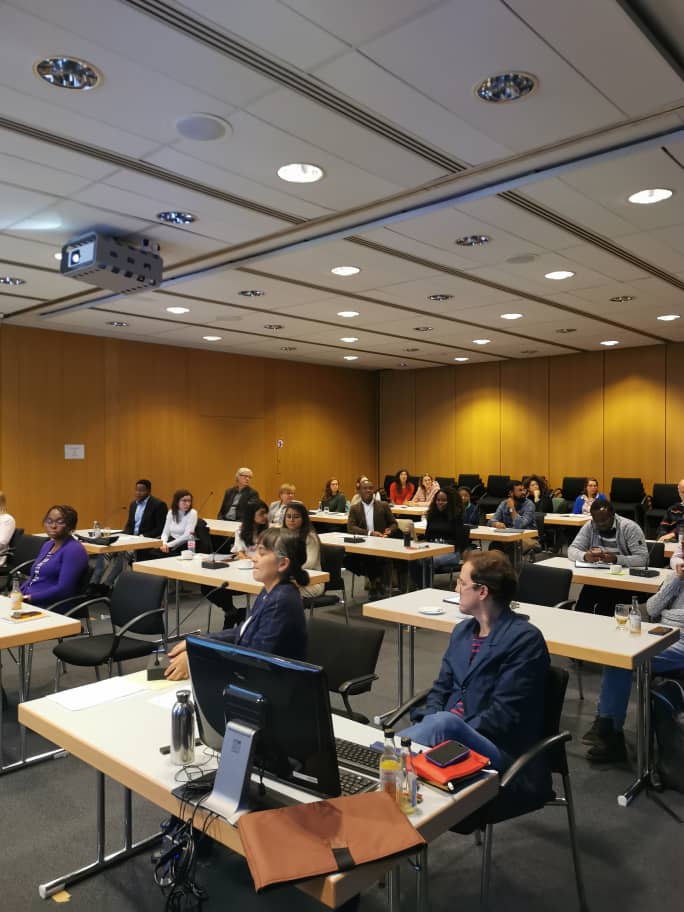
Which way forward?
In his presentation on Water, Sanitation and Hygiene (WaSH) in cities, Professor Dr. Thomas Kistemann (Public Health Institute and Department of Geography, University of Bonn) highlighted how water and sanitation are good starting points for looking at poverty and inequality as a whole. By encouraging safe and inclusive WaSH practices, we can achieve a range of public health and development goals, including reducing the burden of work on women and increasing human dignity. While there are many international protocols, treaties, and charters in place for improving the quality and accessibility of water and sanitation, there is still a high global inequality in who has access to healthy blue spaces and facilities. Reflecting on the lack of political willpower to implement and improve healthy WaSH practices, Prof. Kistemann quoted a politician saying:
“Building toilets does not win elections”.
So there needs to be a better implementation through more political will and community-based ownership of blue spaces. Additionally, Kistemann called on the research body to move towards a “WaSH +” approach that additionally looks at irrigation, technological innovation, and recreational blue spaces as essential elements of WaSH.
One Health and Urban Transformation Graduate School
The One Health and Urban Transformation Graduate School based at ZEF looks forward to furthering the discourse on Blue Health and equitable access to water and sanitation in a time of compounding crises.
Authors: Sanjana Rajasekar (ZEF junior researcher) and Ana Maria Perez Arredondo (ZEF senior researcher)
